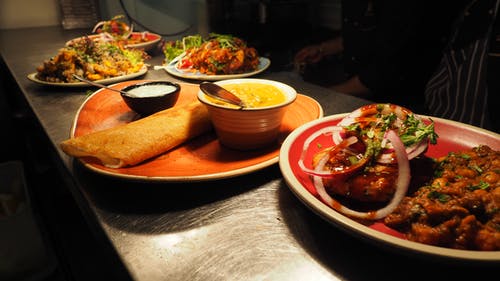Healthy food is a cornerstone of healthy living
The date of eating food and the indefinite time of eating
have a very bad effect in our body. If eating habits are not prescribed, then
you can fall prey to many types of medical problems.
Among them, there is a bed Hewitt, eat food late at night, it
increases body weight and can increase blood sugar levels. But if you have
diabetes, then you need to know how foods affect your blood sugar levels. This
is not only the type of food you eat, but also the combination of how much you
eat and the types of food you eat.
When sugar is done -
Take special care of the amount of carbohydrates in the food.
Carbohydrates often have the most effect on your blood sugar levels. For people
taking insulin at meals, it is important to know the amount of carbohydrates in
your food, so you get the proper insulin medication.
Make a list by writing about the foods you eat and simplify
your meal plan. Use a measuring cup or a scale to ensure proper portion size
and an accurate carbohydrate count.
Balance every meal
well. As much as possible, plan to have a good mix of starch, fruits and
vegetables, protein and fat at every meal. Pay attention to the types of
carbohydrates you choose.
Some carbohydrates,
such as fruits, vegetables, and whole grains, are better for you than others.
These foods are low in carbohydrates and contain fiber that help keep your
blood sugar levels more stable. Talk to your doctor, nurse or dietician about
the best food choices and the proper balance of food types.
Coordinate your food and medicines. Eating too little in
proportion to your diabetes medications, especially insulin can result in
dangerously low blood sugar. Too much food can cause your blood sugar level to
climb to very high hyperglycemia. Talk to your diabetes health care team on how
to improve your food and medication schedule.
Avoid sugar-sweetened beverages. Sugar-sweetened beverages
are high in calories and provide little nutrition. And because they increase
blood sugar quickly, it is best to avoid this type of drink when you have
diabetes.
The exception is if you are experiencing low blood sugar
levels. Sugar-sweetened beverages, such as soda, juice, and sports drinks, can
be used as an effective treatment to quickly increase blood sugar.
How should the meal of the day be-
Breakfast
• Green salad and coconut water can be taken. Or eat 1 cup of
sprouted grains and 2 boiled eggs.
You can take 100 grams of fruits / 1 raw coconut water / 1
glass of vegetable juice / green tea / 1 glass of buttermilk before lunch.
Lunch
• 1 plate salad, 2 rotis or 1 cup brown rice, 1 cup seasonal
vegetables, 1 cup lentils and 1 cup yogurt / raita -
• Evening snack- with some roasted gram (with no salt and
peels) / 1 Khakhara or 1 fruit Green Tea.
Dinner
• 1 cup of oatmeal + 1 cup of lentils, 2 roti + 1 cup of
vegetables, 1 gram of gram flour made in less oil.
One cup of warm milk 1 hour before bed at night
Important Instructions
• Drink at least 3 liters of water a day.
• Exercise 30 minutes to 1 hour daily.
• Do not drink water immediately after meals.
• Do not eat sweet fruits if the sugar is above 200 mg / dL.
• Have dinner at least 2 hours before bedtime.
Work Out
Talk to your doctor about an exercise plan. Ask your doctor
what type of exercise is suitable for you. Keep a list of exercises as needed.
In general, most adults should get at least 150 minutes of moderate aerobic
activity a week. Doing about 30 minutes of moderate aerobic activity a day for
most of the week. He can recommend the right balance of aerobic and muscle
strengthening exercises.
Physical activity is another important part of your diabetes
management plan. When you exercise, your muscles use sugar (glucose) for
energy. Regular physical activity also helps your body to use insulin more
efficiently.
Exercises work together to lower your blood sugar levels. The
harder your workout, the longer the effect. But even light activities - such as
homework, gardening, or being on your feet for extended periods - can improve
your blood sugar.
Check your blood sugar level. Check your blood sugar levels before and after exercise, especially if you take insulin or medications that lower blood sugar. Exercise can reduce your blood sugar levels even after one day, especially if the activity is new to you, or if you are exercising at a more intense level. Be aware of warning signs of low blood sugar, such as feeling unstable, weak, tired, hungry, light, irritable, anxious or confused.
Drink plenty of water or other fluids while exercising
because dehydration can affect blood sugar levels.
If your blood sugar level falls too low, always take a small
snack or glucose pills with you during exercise. As required














0 टिप्पणियाँ
any one